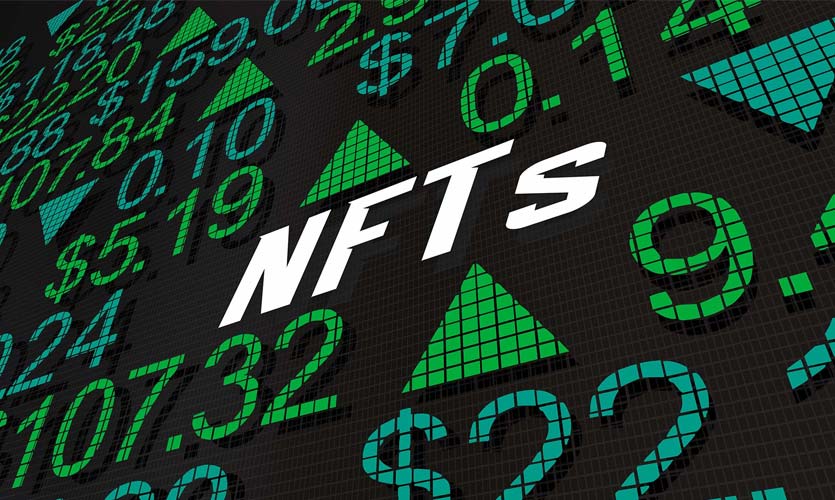According to a report released by Chainanalysis, some people have repeatedly been selling their own non fungible tokens (NFTs) to themselves in order to artificially inflate their prices. The practice is known as “wash trading” and has been a key factor behind the NFT market’s rise to an estimated $44 billion in sales last year. However, it has been difficult to prove. The report by the blockchain analytics platform says that some examples are evident and money laundering through NFTs is a small but growing criminal activity. Chainanalysis is a company that monitors blockchain technology, which is a digital ledger that records transactions and is the operational foundation for cryptocurrencies and smart-contract assets such as NFTs.
NFTs or non fungible tokens are known for its unique nature that uses distinct identifying codes and cannot be replaced with something else as you would receive a completely different item in that case when trading. Bitcoin is fungible – if you trade one bitcoin you will receive another. The idea that drives an NFT is the digital scarcity it creates, which is in contrast to most digital creations that are infinite in supply. In theory, limited supply is supposed to create a demand for these assets. The token has been around since 2014 and has gained fame in recent years as a means to buy and sell digital artwork. NFT enthusiasts see them as a collectible, which allows the buyer to own the item. It contains a built-in authentication that serves as a proof of ownership, and there can only be one owner at a time. Collectors value those “digital bragging rights” almost more than the item itself. However, the online asset has seen the rise of certain issues like downloading and making profit off of artists’ work without their permission.
The report identified and tracked NFTs that were sold back and forth 25 times by the same cryptocurrency wallets. It is a clear example of the existence of a small but visible case of money laundering. In the 110 profitable cases, sales from those NFTs made nearly $8.9 million. However, the study identified a wash trader that did 830 trades between their accounts but profited only $8,383, indicating a not-so-effective strategy. The reason behind this being that smart NFT traders who wish to hide their activity use different Ethereum wallets for each transaction. The Chainalysis findings are likely only a small fraction of how many NFTs are traded, said Kimberly Grauer, the platform’s director of research.
“What this data set looks at is, of the individuals who were selling NFTs at scale, how many of them are actually just funding their own wallets,” said Grauer. “We built a very, very, very conservative estimate of what might be NFT-related wash trading,” she added.
While it may seem like an easy way to drive up an NFT’s value, Grauer says that wash trading is not a foolproof plan. Since every Ethereum transaction involves a small commission called a gas fee, a person who repeatedly sells to themselves will have to keep paying the gas fee and will eventually need to sell their NFT for enough to make up for those costs. Chainalysis found 152 clearly washed NFTs that were sold for a collective loss of more than $400,000. “The underlying sentiment is that all NFT activity is wash trading, but especially when it comes to times to pay gas fees, it’s not something that makes a whole lot of sense to do,” said Grauer.
Read more: Delhi Police’s Crackdown On Cryptocurrency Theft Linked To Hamas
The director of cybercrime investigations for the Internal Revenue Service, Jarod Koopman, whose department is in-charge of solving fraud cases involving cryptocurrency, said that while the US has clear rules for regulating wash trades for stocks, the law is unclear regarding NFTs. “There aren’t the regulations that are in place that are in the traditional finance sector,” Koopman said. But he said that the IRS does look for instances where traders are “purposely manipulating the market to inflate it, to take advantage of other investors on the other side”.
In its report, Chainanalysis wrote, “Money laundering, and in particular transfers from sanctioned cryptocurrency businesses, represents a large risk to building trust in NFTs, and should be monitored more closely by marketplaces, regulators, and law enforcement.”









